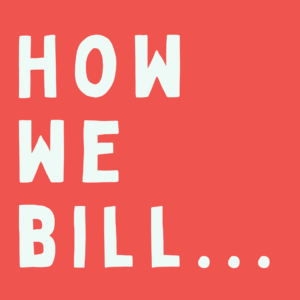Interest rates and inflation are both on the rise worldwide. Market volatility has had an impact on the bottom line of many businesses, real estate investments and projects. Can you relate to any of this? You may be considering a capital call to your investors.
This article will offer some recommendations for managing partners and project sponsors when it comes to investor capital calls.
Investor Capital Calls
Even in economies that have arguably “recovered” from the impact of the Covid-19 pandemic, consumption patterns have changed. People aren’t spending their money on the same things they did just a few years ago. And this has created a lot of volatility in the market.
If you have secured funding from investors, you may find yourself facing an uncomfortable situation. Additional capital may be needed to address unforeseen expenses, sustain the venture, and execute the business plan.
This isn’t an enviable position, but you are not alone. And a capital call may be necessary to safeguard everyone’s investment and ensure long-term success.
Over-Communicate with your Investors
When things aren’t going as planned, it’s crucial to maintain open communication with your investors. The need for a capital call usually doesn’t arise suddenly. It gradually builds up over time. An as the managing partner or project sponsor, you can often see this happening long before the capital call becomes necessary and urgent.
This is a time strengthen communication channels – not to stick your head in the sand. If you have been sending quarterly reports, then consider switching to monthly. Create a lighter and more streamlined version that allows you to maintain a continuous conversation with your investors.
More frequent, even informal communications can go a long way toward making your partners feel included. It can be a phone call, or a Facetime, or a picture on WhatsApp. But invest in your relationship with your investors. In fact, do this even when a capital call isn’t even on the radar.
You want to avoid shocking your investors when it does finally become necessary to make a capital call. They are more likely to be receptive if they are able appreciate and understand the situation.
Contribute Capital Before Making a Capital Call
As painful as this may sound, consider dipping into your own pockets to provide some supplemental funding to the venture.
This may help to avoid (or at least delay) the need for a capital call. It may also shows that you, as the managing partner or project sponsor, appreciate the sensitivity around the capital call when it ultimately becomes necessary. And it may also serve as a demonstration of your faith in the future of the business.
But it is important that you do this in the right way!
If you are providing unilateral funding, it probably makes sense to do so in the form of a loan. But the loan needs to be on indisputably fair terms… actually, maybe even BETTER than fair terms (in favor of the company, obviously).
Also, your investors should be aware of the loan and the terms BEFORE you lend the money. Otherwise, it could backfire! If caught off guard, your investors may be offended by your unilateral capital contribution instead of appreciative of the gesture.
Really – you need to do this in a right way so that your capital contribution results in a net positive with respect to your investor relations.
Adhere to your Partnership Agreement
Before actually making a capital call to your investors, you have to take a close look at your partnership agreement. Most agreements will include a section dedicated to “Financing the Company” or “Capital Calls” or “Additional Capital Contributions” or something similar. This section should set out the procedures for when the venture needs to request more funding from the partners, how the partners will fund the partnership and what happens if a partner declines to fund or is unable to fund.
Unexpected capital calls are sensitive and uncomfortable. This is pretty much unavoidable. So this is definitely not something you want to approach haphazardly. You don’t want to misstep.
Put Yourself in the Investors’ Shoes
Most of the time, your investors won’t be under any contractual obligation to fund capital calls. However, your partnership agreement should contain dilution provisions that establish how a non-funding partners’ positions will change if some fund and others don’t fund, as well as the rules and parameters for bringing in new equity or debt.
Or the partnership agreement may allow for partners who are willing to fund to treat the new capital contributions as bridge loans with an interest rate and repayment date, or to treat new funding as first-money-out loans with priority in the distributions waterfall.
Most of the time, your investors aren’t going to be excited and happy with an unexpected capital call. One of the first questions that they will probably consider is what happens if they don’t fund. You need to anticipate this question and to be prepared to help them think it through.
Gross Up the Capital Call
Finally, when you make the capital call, consider requesting a bit more than the actual projected need.
I recommend this for two reasons:
First, the very fact that you are making a capital call is a reminder than things don’t always happen exactly according to your pro forma and projections. So, do yourself and your project a favor, and build some contingencies into your capital call.
Second, you may be wise to prepare for the possibility that not all of your investors are going to fund. And the company needs to be able to function and survive off of whatever capital contributions are funded.
Bottom Line?
In a volatile market like this one, lots of private companies and projects are facing situations in which they need to request additional capital contributions from their investors. As the managing partner or project sponsor you can probably see this coming, but it may be tempting to avoid acknowledging the likelihood of a capital call until the situation becomes urgent.
Don´t fall into this trap. This is a time to build trust and good will with your investors and to be crystal clear with the rules of the game set out in your partnership agreement.
If you are stressed about an upcoming capital call to your investors, then we may be able to help you think about it more clearly. You can write to us at info@theindependentlawyer.com.







